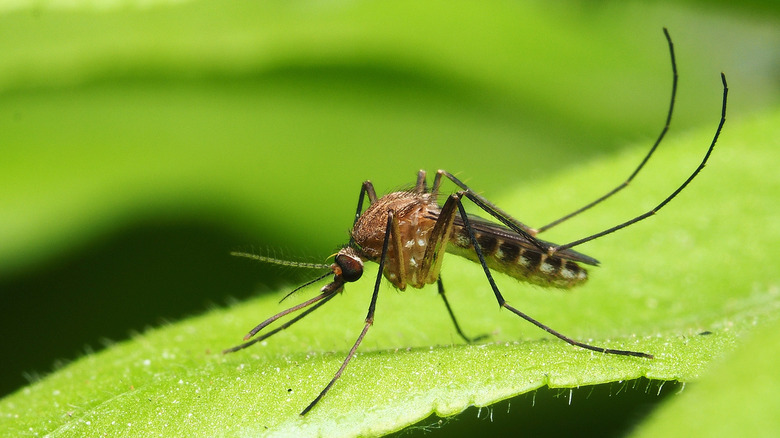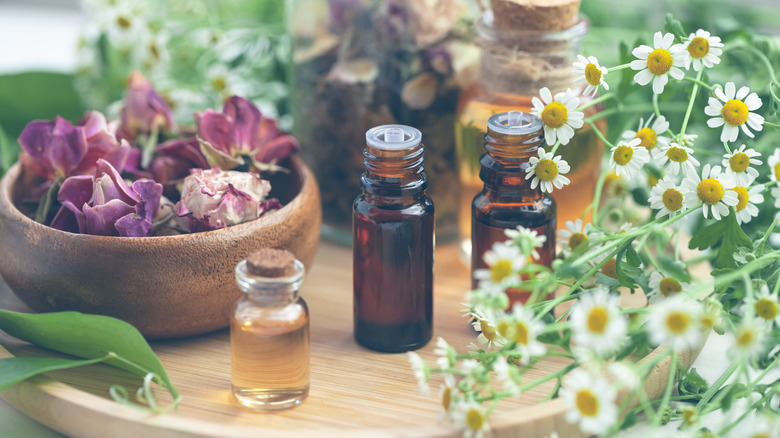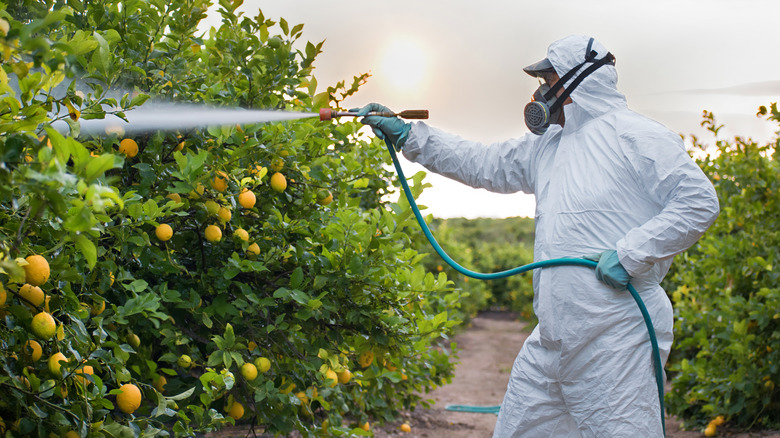Study Tests Natural Oils In Place Of Chemical Pesticides For Mosquito Control
Mosquitoes have historically been the most menacing insect, and they've been around for pretty much the entirety of our existence — or, possibly, even longer (via Smithsonian). Even today, nearly 0.7 million people die every year from mosquito-borne diseases, of which malaria alone resulted in 627,000 deaths in 2020, according to the World Health Organization (WHO). Since the industrial revolution, humanity has depended on synthetic insecticides or pesticides like DDT to obliterate the ominous insect, but these chemicals also threaten humans and other animals by entering the food chain. They are also a leading cause of pollution, while mosquitoes have adapted to become resistant to these chemicals.
To redress these issues, scientists have been actively researching organic and eco-friendly alternatives to eliminate the harmful effects on humans and other animals. Plant extracts such as essential oils have gained importance in this research for their antibacterial, antifungal, and antiviral properties. In recent research published in the science journal Nature, scientists have studied the efficiency of 32 different essential oils in killing mosquitoes during their larva and adult life stages.
Some essential oils are very effective
In their research, scientists evaluated the effectiveness of essential oils by measuring the Lethal time 50 (LT50) — the time it takes following inoculation for 50% of the insects under evaluation to die — and the overall mortality of the mosquitoes after 48 hours. The study focused on a particular species of mosquitoes, Culex pipiens, also known as the common house mosquito and the dominant carrier of malaria in the US.
The researchers found that Thymus vulgaris (garden thyme) and Camellia sinensis (green tea, used to extract tea tree oil) were the most effective essential oils in killing the larvae of the Culex pipiens species of mosquitoes, resulting in 100% mortality. Meanwhile, Viola Odorata (sweet violet), Anethum graveolens (dill), and Nigella sativa (black cumin) were the most potent sources of essential oils in killing adult mosquitoes. Further, leaf extracts from Camellia sinensis showed the highest efficacy when used as a mosquito repellant.
The study suggests active larvacide and adulticide components from these essential oils can be mixed with other existing insecticides to increase their efficacy.
Synthetic pesticides are detrimental to human life
The use of essential oils in place of synthetic insecticides and pesticides can alleviate the toxic effects of these chemicals on humans and the environment. WHO also notes that besides resulting in poisoning by entering the food chain, some countries have high suicide rates linked to the use of certain particularly hazardous pesticides. Banning these substances may be an effective way to reduce suicide numbers in these regions.
In contrast, essential oils are not only sustainable and biodegradable in nature, but are mostly non-toxic to humans and many other animals. Besides being better for the environment and safer for many living organisms, the extraction of essential oils is also relatively simple compared to synthetic compounds, while the plants from which the oils are sourced are readily available.


